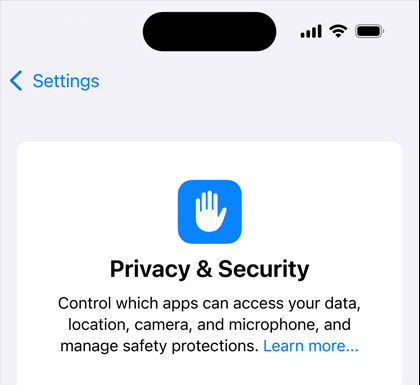Apple’s iOS 18, a significant update to its mobile operating system, is packed with innovative features designed to enhance user experience and privacy. Released in September 2024, iOS 18 introduces a range of enhancements across various areas, including:
- Enhanced Privacy: The update includes new privacy features like Contact Sync, which allows users to have greater control over which apps can access their contact information. Additionally, iOS 18 strengthens privacy protections for web browsing and app tracking.
- Improved Performance: The operating system offers improved performance and battery life, ensuring a smoother and more efficient user experience.
- New Camera Features: iOS 18 brings exciting new camera features, such as advanced computational photography techniques and improved video stabilization.
- Enhanced Accessibility: Apple has focused on making iOS 18 more accessible to users with disabilities, with new features and improvements to VoiceOver, AssistiveTouch, and more.
- Updated Apps: Several built-in apps, including Messages, Maps, and Photos, receive significant updates with new features and enhancements.
The highlight of the release – Enhanced Privacy
Apple’s iOS 18 update has introduced a significant change to the Contact Sync feature, which has sparked a mix of praise and concern. This update allows users to have more control over their contact sharing, but it also poses challenges for companies that rely on contact data to connect users, with The New York Times even publishing if Apple Just Kill Social Apps?.
The Changes in iOS 18 Contact Sync
Previously, when an app requested access to a user’s contacts, it was an all-or-nothing decision. Users had to either share their entire contact list or none at all. With iOS 18, Apple has introduced a more granular approach. Now, users can choose specific contacts to share with an app, rather than granting access to their entire contact list.
Let’s delve into the pros and cons of this change.
Pros from a Privacy Perspective
- Enhanced User Control: Users can now decide exactly which contacts they want to share with an app. This selective sharing enhances privacy by limiting the amount of personal information exposed
- Reduced Data Exposure: By allowing users to share only selected contacts, the risk of exposing sensitive information is minimized. This is particularly beneficial for users who have a mix of personal and professional contacts
- Increased Trust: This change can increase user trust in apps and the iOS ecosystem as a whole. Knowing that they have more control over their data may encourage users to share information more willingly, albeit selectively
Cons from a Data Collection Perspective for Companies
- Reduced Data Availability: For companies that rely on contact data to connect users, the selective sharing feature means they will have access to less data. This can hinder their ability to suggest connections and grow their user base
- Challenges for New Apps: Start-ups and new social apps may find it particularly challenging to gain traction. Without access to comprehensive contact lists, their ability to help users find friends and build networks is significantly reduced
- Potential Competitive Disadvantage: Established apps with large existing user bases may not feel the impact as severely. However, new entrants may struggle to compete, as they won’t have the same level of data to leverage for user connections
The changes to the Contact Sync feature in iOS 18 reflect Apple’s ongoing commitment to user privacy. While these changes offer significant benefits in terms of enhanced control and reduced data exposure, they also present challenges for companies that depend on contact data. Balancing privacy with functionality will be key for app developers moving forward.
What are your thoughts on this update? Do you think the privacy benefits outweigh the challenges for companies?


Leave a Reply